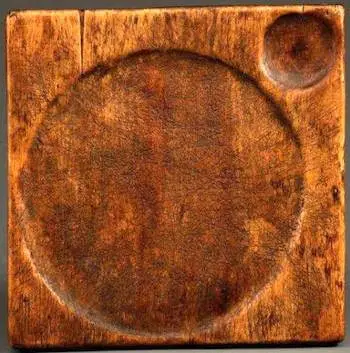A substantial, nourishing meal.
A square meal
What's the meaning of the phrase 'A square meal'?
What's the origin of the phrase 'A square meal'?
guides, the expression ‘square meal’ doesn’t
derive from the use of square plates.
It is frequently repeated, by tour guides and the like, that the expression ‘a square meal’ originated from the Royal Navy practice of serving meals on square wooden plates. Such plates, known as trenchers, did exist so that is a plausible story, but there’s no evidence to support it. In fact, the lateness of the first printed record (see below) pretty well rules this out as a credible theory.
The Royal Navy’s many millions of ship’s logs are still available and, if the phrase came from that source, it would surely have been recorded before the mid-19th century.
This ‘square plate’ theory is one of the best-known examples of folk-etymology. The phrase exists, the square plates exist, and two and two make five. To be more precise, what we have here is a back-formation. Someone hears the phrase ‘square meal’ and then invents a plausible story to fit it.
The word square has many meanings, including ‘proper, honest, straightforward’, and that’s the meaning in ‘square meal’. This isn’t a rectilinear meal on right-angled crockery, but a hearty and satisfying meal.
The phrase is of US origin. All the early citations are from America, including this, the earliest print reference I have found – an advertisement in the Wisconsin newspaper The Republican Journal, December 1804:
“25C buys a square meal at any time of the day at the City Bakery.”
There was a spate of coinages of ‘food words’ in the USA around that date. The terms below all originated in the 1830s and 40s:
Chilli con carne
Clambake
Cottage cheese
Cupcake
Jerky
Tea cake
Tenderloin
Tutti-frutti
Seafood
The use of ‘square’ to mean honest and straightforward goes back to at least the 16th century; for example, in 1591, in Robert Greene’s Defence of Conny Catching:
“For feare of trouble I was fain to try my good hap at square play.”
Other phrases use the word with that same meaning, for example:
– Fair and square
– All square
– Square deal
– but these haven’t had spurious derivations invented for them.
Coincidentally, another phrase – the opposite of ‘fair and square’ – also has a false derivation relating to plates in the Royal Navy. The story goes like this. The square wooden plates that sailors received their food on had raised edges called ‘fiddles’. If they took too much they were ‘on the fiddle‘. Perhaps ‘story’ is being too kind; invention might be more accurate – see more on this phrase here.
See other phrases that were coined in the USA.
The history of “A square meal” in printed materials
Trend of a square meal in printed material over time
Related phrases and meanings
Browse more Phrases
About the Author

Phrases & Meanings
A-Z
A B C D E F G H I J K L M N O P Q R S T UV W XYZ
Categories
American Animals Australian Bible Body Colour Conflict Death Devil Dogs Emotions Euphemism Family Fashion Food French Horses ‘Jack’ Luck Money Military Music Names Nature Nautical Numbers Politics Religion Shakespeare Stupidity Entertainment Weather Women Work
How did we do?
Have you spotted something that needs updated on this page? We review all feedback we receive to ensure that we provide the most accurate and up to date information on phrases.
